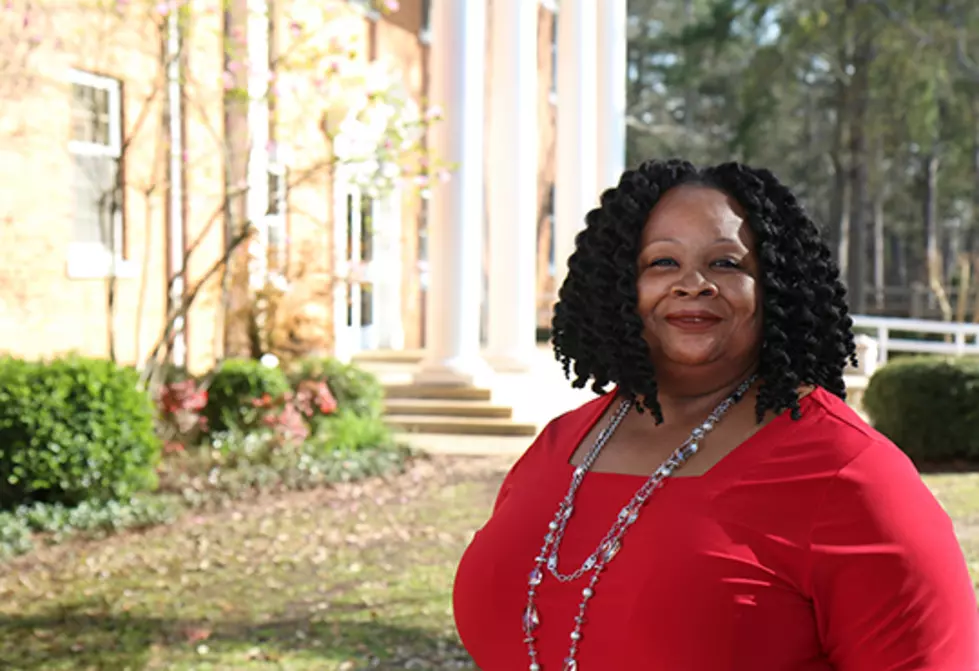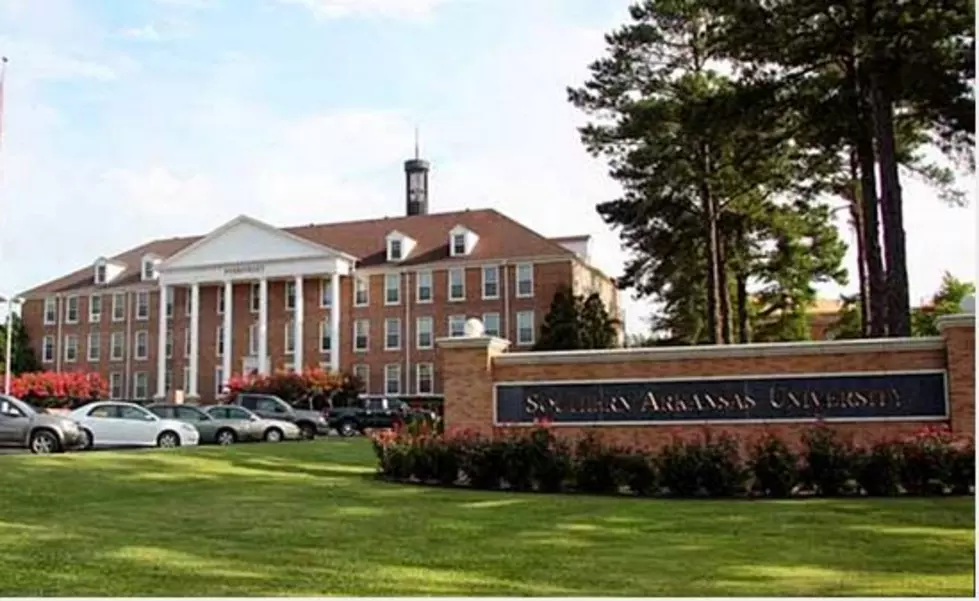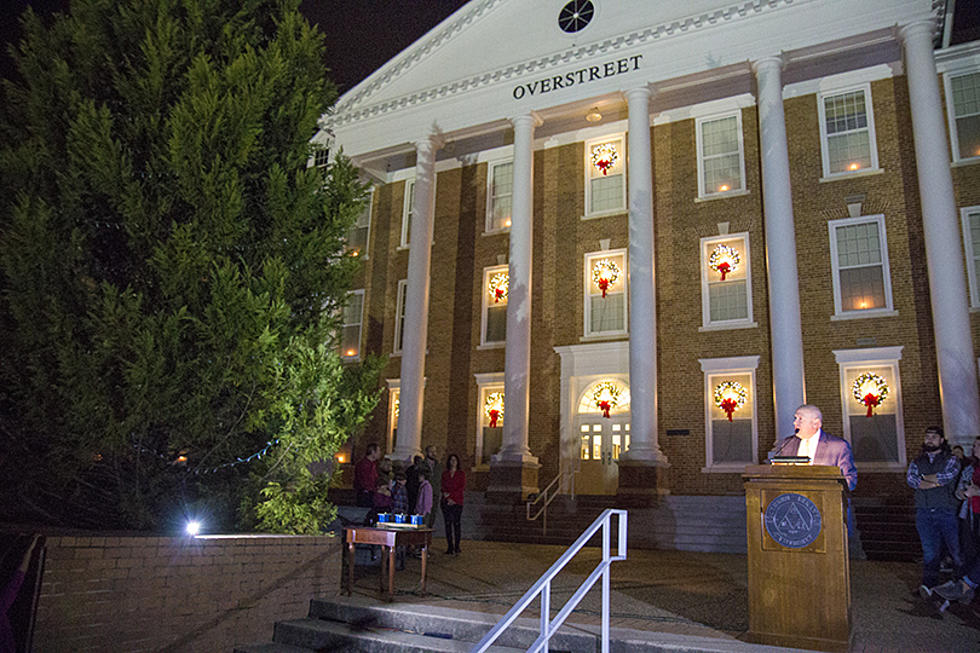
Student Finds Value in Higher Education via Program
Pam Ward has learned the importance of receiving a higher education courtesy of one of many 2+2 agreements between South Arkansas Community College and Southern Arkansas University as told to us in a recent press release.
Ward, a non-traditional student from El Dorado, Ark., earned her Associate of Arts degree and Associate of Applied Science in Criminal Justice at SouthArk in El Dorado and transferred to SAU in January 2016. She is pursuing a bachelor’s degree in Criminal Justice and a minor in Psychology. She did not begin her college career until she was in her mid-40s, after an academic start that seemed less than promising.
“I graduated in 1987 from El Dorado High School,” she said recently. “My family didn’t have a lot. I was a low-scoring student, and I suffered from low self-esteem. I grew up in the projects, so people already looked down on you. What I went through as a child is the reason I want to do this today.”
Ward said she never felt she got enough support at home to be a good student. “People say, ‘it starts in the home,’ but you don’t know what kind of home a child comes from. I hate to hear that phrase. I just didn’t feel like I mattered.”
After high school, Ward worked a variety of jobs, “day care, security, pizza, any job,” she said. “I’ve worked since I was 16 years old. I did think about college, but it just wasn’t a reality for me, money-wise, support-wise, any of that kind of stuff. I’d had a child by the age of 14. My main thing was to work and pay my bills.”
After a divorce and an economic setback, she started thinking about college, especially after a friend who was a police dispatcher encouraged her to enroll at SouthArk. “I always said that my mind was too old, but I knew I had to do something. I had experienced a big drop in pay which devastated me, but my friend encouraged me to get my degree. I enrolled the following semester, in 2012.”
She didn’t have a degree plan or career path at first. Tests suggested she might pursue a career in law enforcement, “but I thought, ‘no, that wouldn’t be me.’ As I went on with my psychology classes, I began to think, ‘OK, this is kind of where I want to go.’”
Experience in her local community nudged her toward psychology and criminal justice.
“I wasn’t a juvenile delinquent, but I could have been,” she said. “Once you get labeled a ‘bad child,’ it follows you. I saw a lot of children with that label, and people look at that instead of what the child might be going through. It takes the right kind of person to talk to and work with these kids. I wanted to make a difference in that way.”
She said it is important to help people – teens and adults – going “round and round in the criminal justice system. Once I decided on my major at SouthArk, I knew I was gonna help teens. But I realized that not only teens but adults need help because of the lack of jobs and education.”
Without those, she said, “offenders are going to come right back into the system. It’s hard to get a job, but if you are a non-violent felon, it’s 20 times harder to get one. We’re missing out on some good workers.”
She said she wants to encourage non-violent offenders to get job training and an education. “If you give them encouragement, there is a good chance they won’t do it again. Sometimes people are just trying to feed their families. Everybody can change. I changed. People just need the tools.”
Ward said she “fell in love” with her psychology courses at SouthArk. “My professors were awesome, I loved my Criminal Justice classes, and I felt like it was my calling. I like helping people. I thought, ‘maybe this is what I want to do.’”
Her first semester, though, was something of a personal struggle.
“The anxiety level when I started was off the chart,” she said. “I had no idea the workload or the time you had to put in to pass just one class. I took four classes, thinking, ‘that’s nothing.’ Once I got over that first semester, I was good.”
As a non-traditional student, Ward said she immediately understood that she “had to want” to succeed in college. “You have to make that choice,” she said. “You have to say to yourself, ‘this is what I need to know.’ That’s why some students only stay in it one or two semesters and then drop out – they don’t get it yet.”
She said a community college such as SouthArk is the right place for many students because “they’re not hundreds of miles from home and can get the feel of the workload. My oldest daughter was glad I encouraged her to go local, and she started at SouthArk before transferring to Conway. You don’t have all the clubs and partying, your main focus is on school work.”
She understands the difficulties many students experience, trying to balance life with college. “Traditional students have jobs, they have children, and my hat is off to them. My youngest daughter is graduating from high school in May, and I don’t have to tend to any non-self-sufficient children. I can do all the studying I want; half my bed is dedicated to books for class. I know my mindset is right.”
Encouragement and support are necessary to success, she said. “When I started getting good grades, I got a lot of support from family and friends, and I even had a whole new set of friends by then, so that made me feel good about myself. It boosted my self-esteem, which had been terribly low forever. When you feel you’re supported, it gives you the motivation to do something.”
She enjoyed a smooth transition from SouthArk to SAU. “It was an adjustment to the larger student population,” she said, “but I have great professors and great support, and I’m enjoying my classes.”
Ward said she likes to “raise my hand and ask questions because I know the younger students all have the same questions I do. You can see the relief on their faces.”
The importance of higher education has impressed itself on Ward.
“Anything is possible with a college education,” she said. “You have to find positive people to encourage you. I can see both sides because of where I grew up. If you keep hearing that you’re never going to amount to anything, you start taking it seriously. You start living it. You have to get around positive people. You can no longer make it on a high school diploma, you have to get a college education to make it in this world, or learn some kind of trade.”
She is interning with the Arkansas Department of Corrections in El Dorado and will graduate from SAU in May. While she hasn’t yet decided on a career, she’s thinking about getting her master’s and perhaps working in the non-profit sector.
The 2+2 program allows students to start with a high school diploma and add two years for an associate’s degree from SouthArk, then transfer to SAU for two more years toward a bachelor’s degree. Courses that are currently offered between SouthArk and SAU include social work; criminal justice; industrial technology; accounting; finance; marketing; psychology, and education.
“We’re always looking for ways to provide opportunities for students to achieve their goals and dreams,” said Dr. David Lanoue, provost and vice-president of Academic Affairs for SAU. “Our partnerships with community colleges are a big part of that. We have a number of 2+2 programs with SouthArk, Sau Tech, and beyond. These programs provide a chance for students who might not otherwise be able to seek a college degree. We’re proud of these programs and of the students who graduate from them.”
For more information, visit saumag.edu.
More From Kicker 102.5









